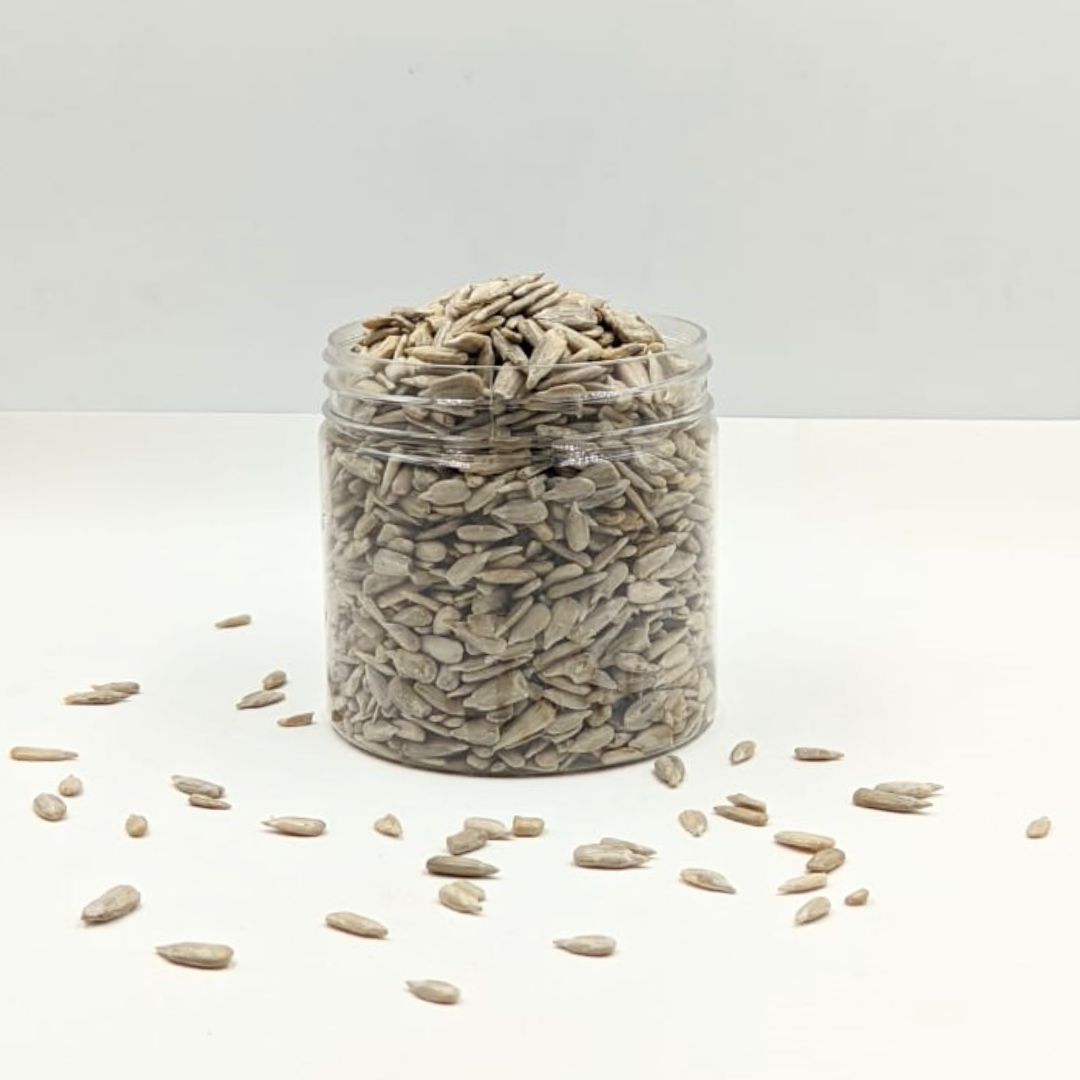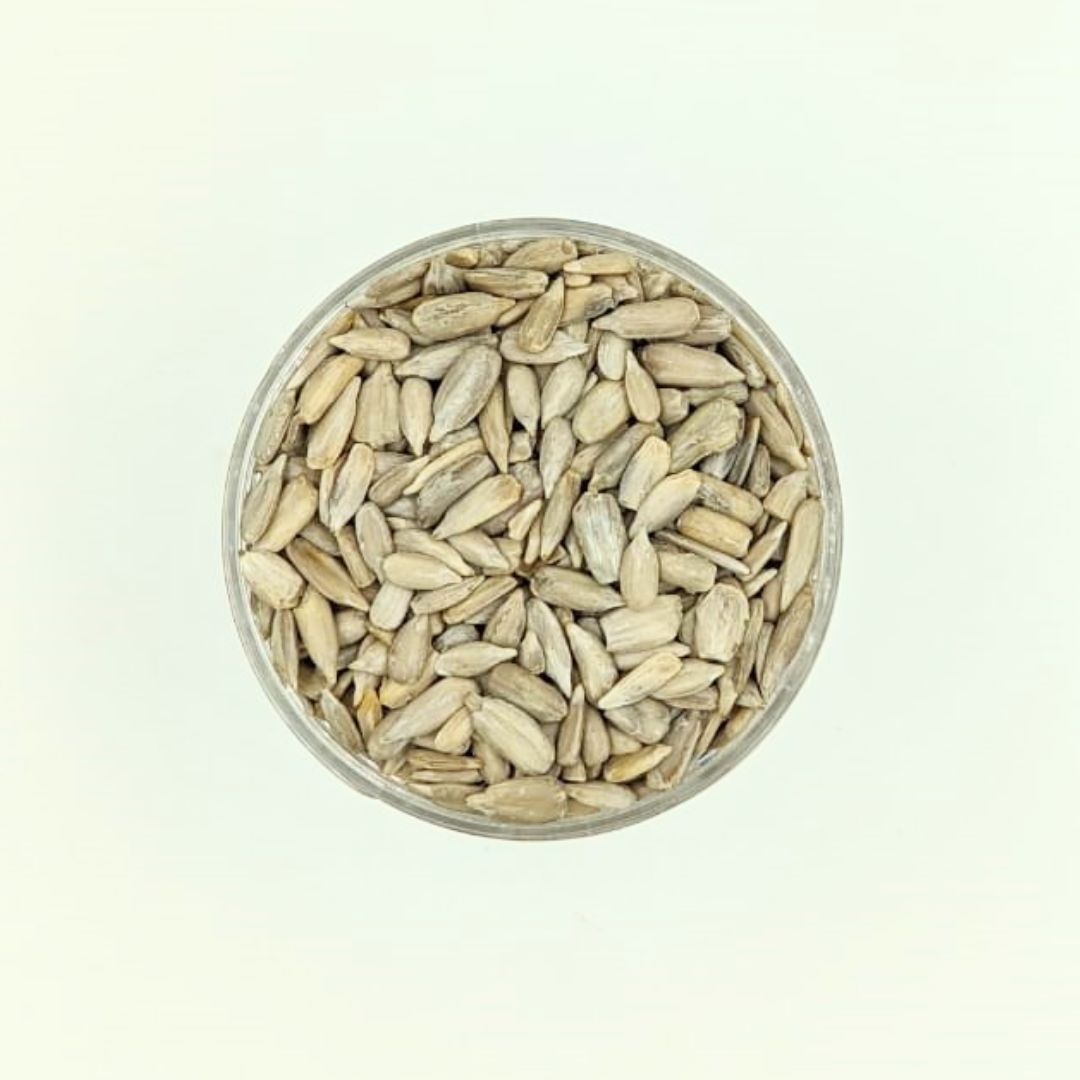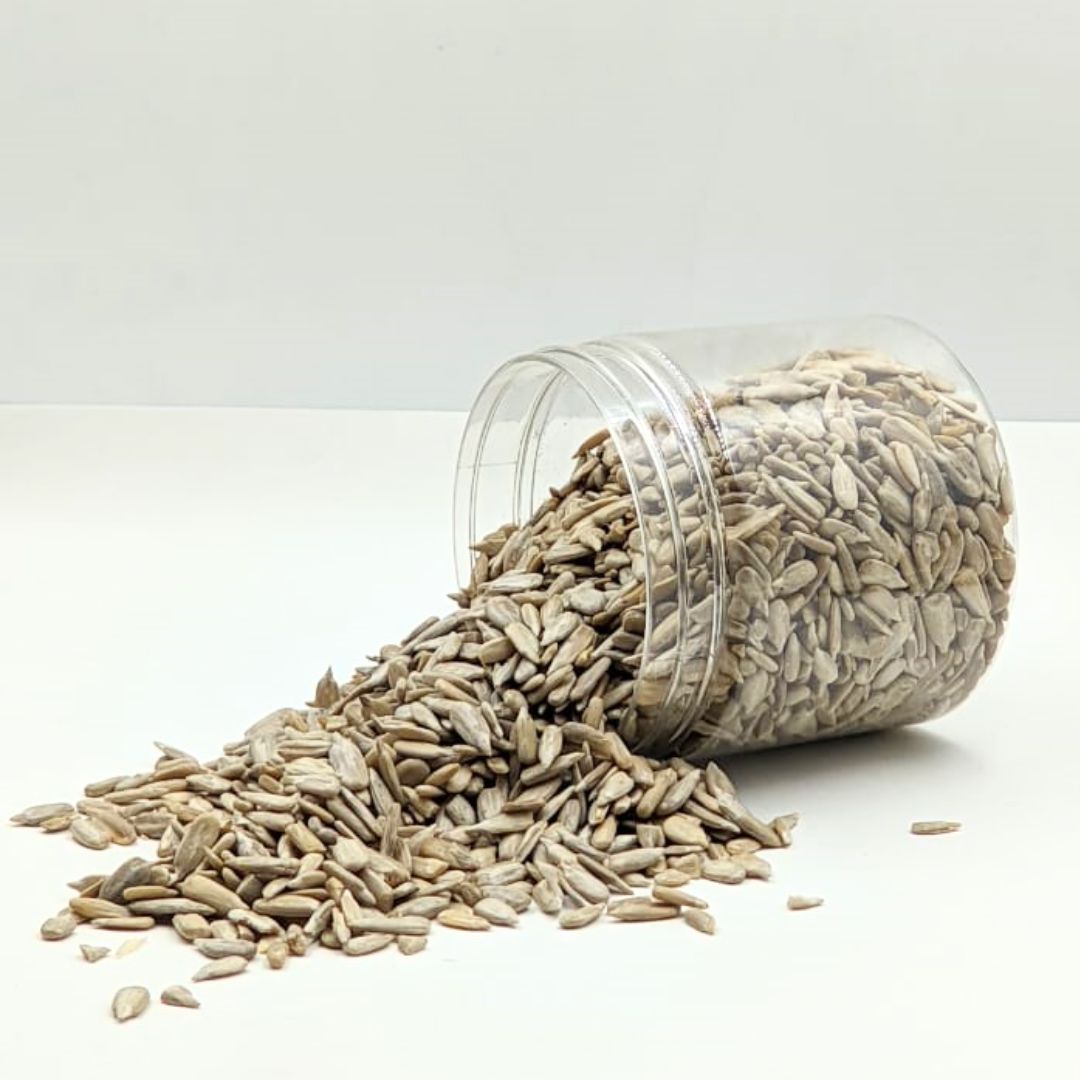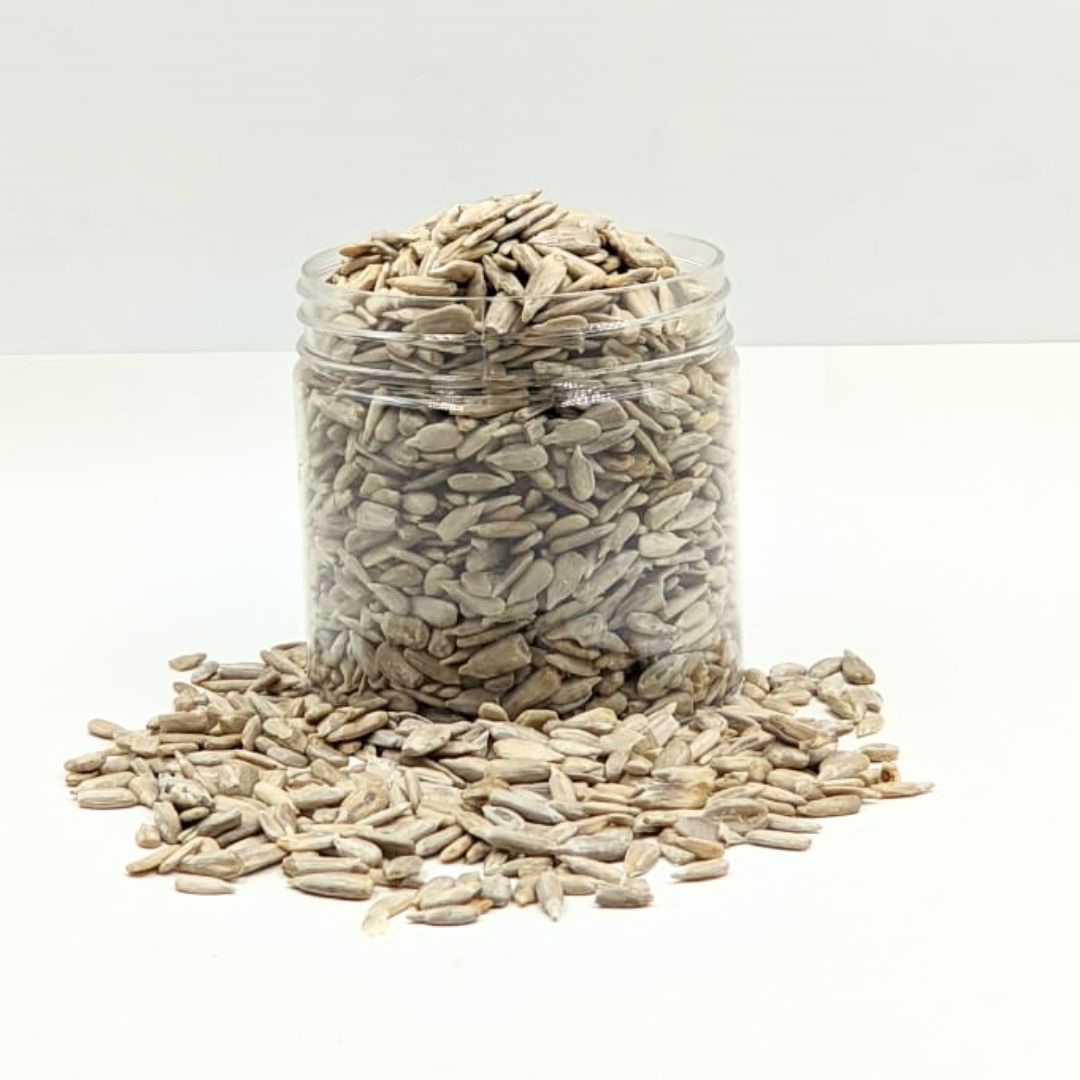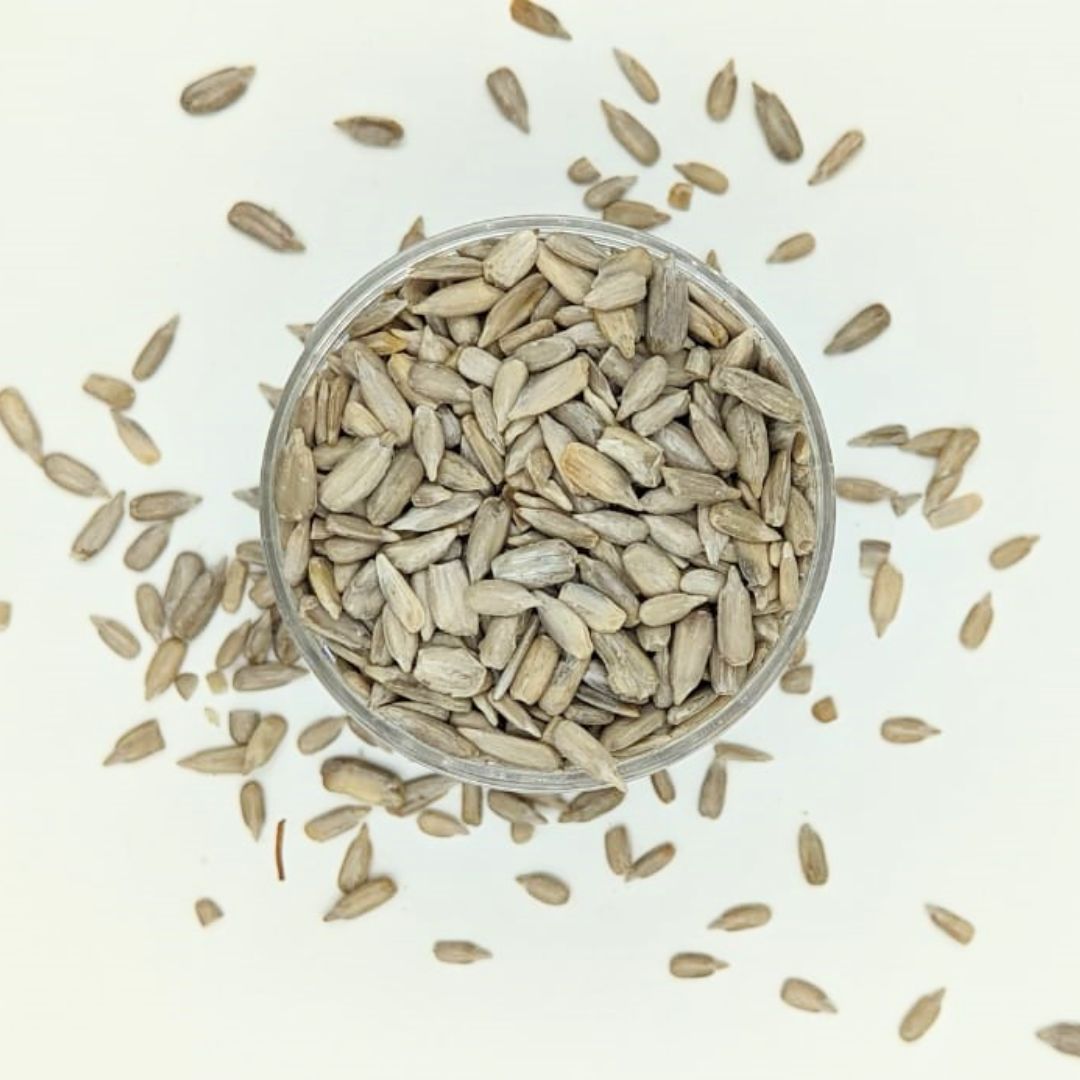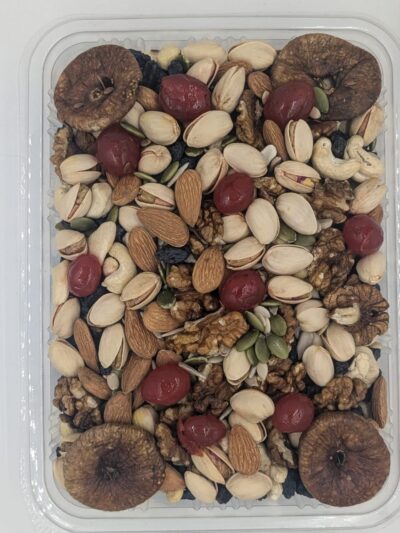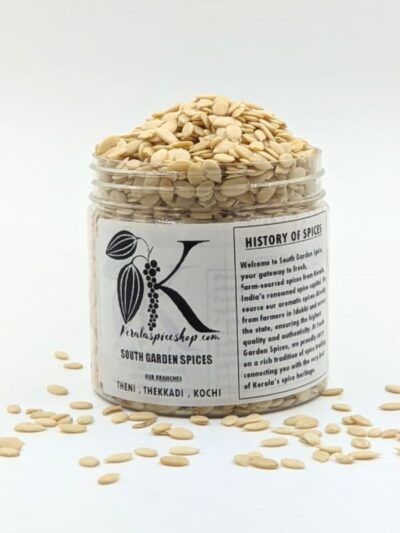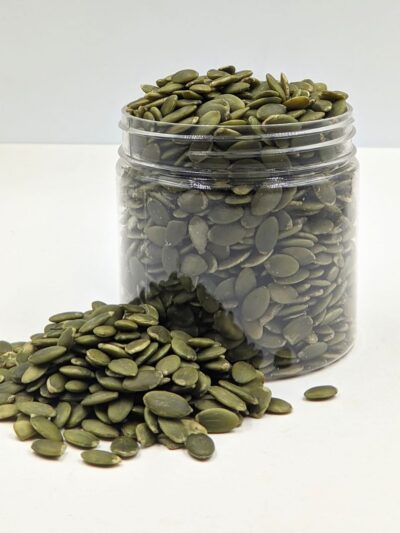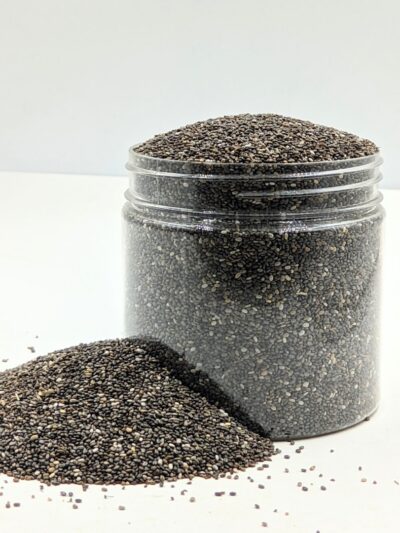Sunflower seeds, derived from the sunflower plant (*Helianthus annuus*), are not only a delicious snack but also a nutritious addition to various diets. Here’s an in-depth look at their uses, benefits, and features:
### Uses:
1. **Snacking**: Sunflower seeds are commonly eaten on their own, either raw or roasted. They can be lightly salted or flavored for added taste.
2. **Baking and Cooking**: Sunflower seeds can be added to baked goods like bread, muffins, and cookies. They can also be sprinkled over salads, yogurt, or cereal.
3. **Sunflower Seed Butter**: Similar to peanut or almond butter, sunflower seed butter can be used as a spread or in recipes as a substitute for nut butters.
4. **Toppings**: They can be used as a crunchy topping for soups, salads, and stir-fries.
5. **Sunflower Seed Oil**: Extracted from the seeds, this oil is used in cooking, salad dressings, and as a carrier oil in various products.
### Benefits:
1. **Nutrient-Rich**: Sunflower seeds are packed with essential nutrients including vitamin E, magnesium, selenium, and healthy fats. They are also a good source of protein and fiber.
2. **Antioxidant Properties**: The high vitamin E content in sunflower seeds acts as a powerful antioxidant, protecting cells from oxidative damage and reducing the risk of chronic diseases.
3. **Heart Health**: Sunflower seeds contain unsaturated fats, including polyunsaturated and monounsaturated fats, which are beneficial for cardiovascular health. They can help lower LDL cholesterol levels and improve overall heart function.
4. **Anti-Inflammatory**: The seeds have anti-inflammatory properties due to their content of vitamin E, selenium, and other compounds, which can help reduce inflammation in the body.
5. **Digestive Health**: High fiber content supports healthy digestion and can aid in maintaining regular bowel movements.
6. **Bone Health**: Sunflower seeds provide magnesium and phosphorus, which are essential for maintaining healthy bones and teeth.
7. **Skin Health**: The vitamin E in sunflower seeds supports skin health by reducing signs of aging and protecting against sun damage.
### Features:
1. **High Nutrient Density**: Sunflower seeds are rich in essential vitamins and minerals, making them a nutrient-dense food.
2. **Versatility**: They can be consumed raw, roasted, or used in various recipes, providing flexibility in dietary choices.
3. **Healthy Fats**: They are a good source of unsaturated fats, including linoleic acid, which is beneficial for heart health.
4. **Flavor**: Sunflower seeds have a mild, nutty flavor that complements a variety of dishes and snacks.
5. **Storage**: They should be stored in an airtight container in a cool, dry place to maintain freshness. Roasted seeds or sunflower seed butter should be kept in the refrigerator to extend shelf life.
6. **Allergen-Friendly**: Sunflower seeds are a great alternative for those with nut allergies, offering similar nutritional benefits without the risk of allergenic reactions associated with nuts.
### How to Incorporate Sunflower Seeds into Your Diet:
– **Snack**: Enjoy a handful of raw or roasted sunflower seeds as a healthy snack.
– **Salads**: Sprinkle them over salads for added crunch and nutrition.
– **Baking**: Add sunflower seeds to bread, muffins, or cookies for extra texture and flavor.
– **Smoothies**: Blend sunflower seeds into smoothies for a boost of protein and healthy fats.
– **Sunflower Seed Butter**: Use it as a spread on toast, or as an ingredient in sauces and dressings.
Sunflower seeds are a versatile and nutritious addition to a balanced diet, offering a range of health benefits while being easy to incorporate into various meals and snacks.

